I meet Sze Lai Shan in the bustling Sham Shui Po subway stop on a sunny Saturday morning in Kowloon. Stern-looking and attired in a cream-orange pantsuit, Shan is a social worker and has agreed to take me and two Japanese journalists to show us one of the dark, ugly realities of life in Hong Kong.
Kowloon, a vibrant, colourful shopping and entertainment district in Hong Kong, is one of the most densely populated areas in the world. Shan works for the Society for Community Organization (SoCO), an anti-poverty and human rights NGO.
We grab a taxicab and drive a few blocks to a nondescript building and pile out in front of a stairway and a sign advertising an acupuncture and massage clinic. We climb half a dozen narrow flights before Shan knocks on the door of an apartment.
Shan has brought us to see what are called caged apartments – which is a misnomer. In reality, a caged apartment is either a literal cage, or a wooden box the size of a large refrigerator. As many of these cages or boxes are then stuffed into your average-sized apartment unit.
In this case, Shan opens the door to a room with 15 caged units, either stacked on top of each other or bolted to the ceiling. Most of the tenants are men, some elderly, with all of their worldly possessions crammed in these boxes.
The room is crowded, dark, noisy and rodent-infested. One of the residents, an excitable portly man in his 30s, wearing shorts and a grimy T-shirt, shows us bite marks on his arms and torso from bed bugs. The tenants can pay up to $2,000 Hong Kong dollars per month (the equivalent of $342 Canadian). “Many of the people here suffer from mental health issues and depression,” Shan tells me. They share one toilet and a small kitchen.
I was in Hong Kong to get a deeper understanding of the reasons behind the protests that have roiled the city and captured the world’s attention. Ostensibly, the protests began last year when Carrie Lam, the city’s chief executive, introduced an extradition bill that would allow Hong Kong citizens to be deported to mainland China to stand trial. At one demo in June, organizers claimed that as many as two million outraged residents poured onto the streets.
But after Lam withdrew the bill in October, the protests continued, even becoming more violent.
The question was why?

Hong Kong is a pressure cooker of grievances and frustrations
I soon discovered that Hong Kong is a pressure cooker of grievances and frustrations that have little to do with the extradition law. Behind its prosperous veneer and polished bank towers, Hong Kong is facing a raft of social problems — in particular growing poverty, inequity, a housing crisis and low wages.

“Many social issues and economic issues have been accumulating over the past 22 years,” Eddie Chu Hoi-dick, a 42-year-old progressive member of the Legislative Council, Hong Kong’s governing body, tells me when we meet at his cluttered office in the council’s building that broods on the edge of Victoria Harbour on Hong Kong Island. “Our government inherited (from the British) an unfair economic system from the colonial government before 1997. … And therefore, when the government is heavily relying on revenue generated from land sales, it continues the monopoly of the local economy by real estate developers. And that leads to widening rich-poor gap and skyrocketing housing prices, and that generates a lot of grievances among citizens, particularly the younger generation.”
Youth are alarmed about their futures - and Beijing's reach
As it turns out, Hong Kong’s youth are pissed off and alarmed about their futures. A 2018 survey by the Hong Kong Playground Association said one in three young people are experiencing “mild to extremely severe” levels of depression.
I meet Ian and Helenus at a quiet British-style pub in Kowloon one mid-afternoon. Helenus is 20, thin and pale, and earns a meager and irregular income as an English-language tutor. Suffering from a bone disease, she wears a white mask to cover her face. She is an active protester. Ian, meantime, is a self-confident university student.
“The property market has been skyhigh for so many years,” explains Ian. “A lot of people got rich because of that. As the property market is not going down, we are just getting into the job market. And there are people coming into Hong Kong to compete with us, people, especially from mainland China. And that just compresses the salaries that we can get. And we basically cannot secure any sort of future in terms of owning property at the same time.”
“I would say a lot of people in Hong Kong, a lot of young people live with their families,” adds Helenus. “But those who have to move out, they're mostly moving into subdivided flats.”
“It is a combination of the lack of occupations, as well as the wages issue,” says Ian.
Ian and Helenus say the influence of mainland China on all aspects of Hong Kong life is growing — and often in an insidious manner. “A lot of people who got involved in the movement, they weren't interested in politics at all before the extradition bill came along,” explains Helenus. “But they got involved because they saw that, 'Yeah, we can't change our future, no vote will make a difference. So we'll come out onto the streets'.”
Hong Kong has worst housing shortage in the world
The most pressing social problem facing Hong Kong is a devastating housing crisis that is the most severe in the world. Housing prices have more than tripled over the past decade, with more than 200,000 Hong Kong residents living in the so-called cage, cubicle or coffin homes.

Helenus herself lives in a coffin apartment on the sixth floor of an apartment building in the Mong Kok neighborhood. It was once part of a larger unit that has been subdivided by the landlord. She and her roommate share 80 square feet — a tiny room with no separate kitchen or bathroom. “This is pretty typical for someone of my age group,” she remarks, when we go check the unit out one afternoon.
“Generally, I leave my roommate here a lot,” Helenus informs me. “So nowadays I don't actually stay here very much.”
“And where else are you staying?” I ask her.
“Just actually sleep over at like some other friends’ couches sometimes. Sometimes I just spend the night in McDonalds walking around.”
More than 1.4 million residents living in poverty
Founded as a fishing village before it was taken over by the British in 1842, Hong Kong is now home to more billionaires (93) than any city in the world other than New York. Income inequality has reached its highest level in more than four decades: more than 1.4 million of its 7.4 million citizens live below the poverty line. A recent survey found 84 per cent of protesters said they were angry about class inequality and 92 per cent said the wealth gap was unreasonable.
One in three HongKongers aged 65 or older are living in poverty. A study by Oxfam indicated that more than 190,000 children aged 15 years old or below are in the same boat.

The Our Hong Kong Foundation has said livability in the territory is deteriorating. Indeed, it is one of the most overcrowded cities in the world, with 27,400 people per square kilometre, against 7,400 in neighbouring Shenzhen, and 4,457 in Toronto.
Exacerbating the housing crisis is an almost Victorian labour-rights situation. Hong Kong workers enjoy few legal protections, with no social security, weak labour laws and weak unions.

“In Hong Kong, you know, the whole system is rigged against us,” says Lee Cheuk-yan, the garrulous general secretary of the Hong Kong Confederation of Trade Unions, whom I met in a large park on Hong Kong Island one Sunday afternoon where a protest of 600,000 people was gathering. “We have no protection against union discrimination. So you can form a union. The employer can dismiss you. And then you cannot be reinstated because there is no rights to reinstatement in Hong Kong that are meaningful… Also working hours – we don't even have a law on working hours. So workers in Hong Kong can work for 24 hours or even 48... So imagine Hong Kong is so modern, but our laws are so out of date and it's even worse than that 100 years ago in Europe.”
Meanwhile, Hong Kong has also lost its economic importance. At the time when Hong Kong was handed over to mainland China in 1997, its GDP was equivalent to 18 per cent of the mainland’s. Most of China’s foreign trade passed through Hong Kong while Chinese companies raised the bulk of their money on the Hong Kong stock exchange.
Today, things have changed: In 2018, Hong Kong’s GDP was equal to less than 3 per cent of the mainland’s while less than 12 per cent of China’s exports now go through Hong Kong. And Chinese companies can raise money on the markets in London, New York, Frankfurt and Toronto.
Still, many Western cities, even entire nations, are experiencing the same social problems Hong Kong is currently facing. What makes this city so different are constant battles on the streets with police – because the social problems are not being solved.
Hong Kong's city government is fatally flawed
A big issue is a stilted democratic system, which has allowed problems to fester.
When the British agreed to hand Hong Kong over to China in 1997, the plan was also to turn the Legislative Council – which had previously been an advisory body – into a functioning local city government. The idea was “one country, two systems.”

But there was a flaw in the design. Of the council’s 70 seats, only half are voted into office by average voters. The rest are controlled by industry groups, which are usually pro-Beijing (indeed, Beijing has assiduously wooed Hong Kong companies in recent years, promising them access to the mainland’s enormous market). Given there are also pro-Beijing parties in Hong Kong, this means the balance of power on the council resides with pro-Beijing and pro-big business forces.
Thus, for example, the powerful development industry, which profits from the housing crisis, enjoys enormous sway with the council. “Unable to push through tough reforms to subdue vested interests, as China’s government is doing on the mainland, the (Legislative) Council is also vulnerable to the influence of real-estate developers eager to block measures that would lower prices, such as the allocation of land for more public housing,” noted Andrew Sheng, a fellow of the Asia Global Institute at the University of Hong Kong, in a recent opinion piece.
Carrie Lam, the city’s current chief executive, was voted into office in 2017 by 777 people from the 1,200-person “Election Committee,” many of whose members are business people with close ties to mainland China. “So half of the Legislative Council is not elected by the people,” explains Cheuk-yan. “That's the deal. And with that deal, the businessmen and professionals control the other half, and therefore the pro-democracy forces are not able to get a majority vote for 22 years. And the most we can get is about one-third. And so, with that deal, of course, the Legislative Council is very weak in defending workers rights or improving housing and social rights for the workers.”
With the council under the influence of business interests and pro-Beijing parties, local residents feel their grievances are not being heard. Further fanning their fears is evidence Beijing is encroaching on all aspects of the city’s life. And given Communist Party boss Xi Jinping’s disdain for human rights and dissent, this is generating alarm.

“This is scaring people in Hong Kong,” Paul Zimmerman, a local businessman, environmentalist and politician, tells me in the offices of his graphic design company when we meet one morning. Zimmerman points out many people came to Hong Kong originally to escape life under China’s communist regime. “People are here because they left China because of the Communist Party. Their grandparents left China because of the Communist Party. And what people see is a kind continuous intrusion of the Communist Party and Beijing in Hong Kong affairs.”
“The Communist Party is determined to continue the unfair economic system inherited from the colonial government and it tries to add on that style of authoritarian rule,” observes Eddie Chu Hoi-dick, the Legislative Council member. “So what we have is the worst combination of both colonial rule and Beijing authoritarian rule. That makes people desperate.”
Beijing cracking down on pro-democracy activists
China’s influence on Hong Kong also means that open violence towards pro-democracy activists is growing.
Last July, Lam Cheuk-ting, a member of the Legislative Council with the liberal Democratic Party, heard that a gang of men were assaulting protesters who had entered a Hong Kong subway station. “Suddenly, one hundred gangsters stormed into the station, using batons, wooden stake or other weapons to attack the civilians inside the station indiscriminately,” says Cheuk-ting, when we met at his offices.

Cheuk-ting rushed to the metro station, where he saw Hong Kong police refusing to stop or intervene in the assault. “At the later stage of the attack, the gangsters recognized me and they collectively assaulted me,” says Cheuk-ting. “And I was hit by a baton and my head was injured. My mouth had a deep cut with 18 stitches, and I got a bone fracture on my right hand.”
Many of the attackers were believed to be members of Hong Kong’s triads, the local organized crime groups. “On some occasions, I strongly believe Beijing makes use of the triad members to do dirty things that the government couldn't do,” says Cheuk-ting.
The rule of law is also breaking down, say activists. Prior to becoming a politician, Cheuk-ting was an investigator with the Independent Commission Against Corruption (ICAC), a renowned British-era agency designed to root out local corruption in Hong Kong. “The corruption problem of Hong Kong is getting worse and it’s really worrying,” says Cheuk-ting. “And since the handover, several senior government officials have been prosecuted for the corruption offenses. … I do think there is collusion between top government officials and the business sector, which is getting worse because of the political system of Hong Kong.”
Indeed, in 2013, the commissioner of ICAC himself, Timothy Tong, became the target of investigation for giving inappropriate gifts to mainland officials and traveling excessively at great expense. Yet he was not prosecuted — possibly because of his close ties to Beijing.

Overall, activists say they are in for a long, protracted struggle. “I have to remind people that the Communist Party is the single most powerful, most resourceful, authoritarian regime in humanity’s history,” says Avery Ng, chairman of the League of Social Democrats, a progressive political party in Hong Kong, when we met at a café on Hong Kong island’s waterfront. “I have to say, unlike any other previous movement, there is no end game. If you really want to talk about the end game, it will be the end of the Chinese Communist Party. That will be the end game. Otherwise, this is going to be a long, long and hard, hard fight. And I think this is just the first step because you see Xi Jinping consolidating his own power… The fight is going to get harder."
“And I've got a message for the international community: this fight is not Hong Kong's fight, it’s an international fight. It's not anything to do with just sovereignties: it has everything to do about humanity and shared values of freedom and democracy.”



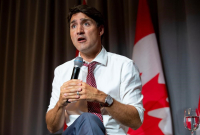
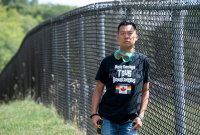
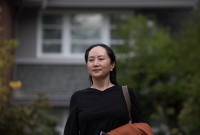

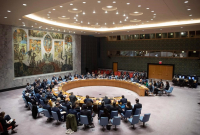
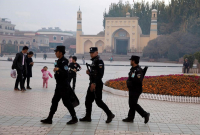

Comments
There is no evidence of that, Betsy (that the Chinese govt wants to become the next world empire). In fact, history tends to show the opposite. The Chinese obviously are suffering under a dictatorial regime, but as far as murderous imperialism is concerned, the US has been and still is much worse.
Consider it an uphill battle when the corporate world is willing to go ANYWHERE for the extra money. China is big and developing quickly, so it certainly would have something for them.
The one thing I always wonder is why this happens, even though Beijing can't possibly be aligned with foreign political parties who pine for China's business. Maybe it's just that Beijing wants to avoid severe conflict.